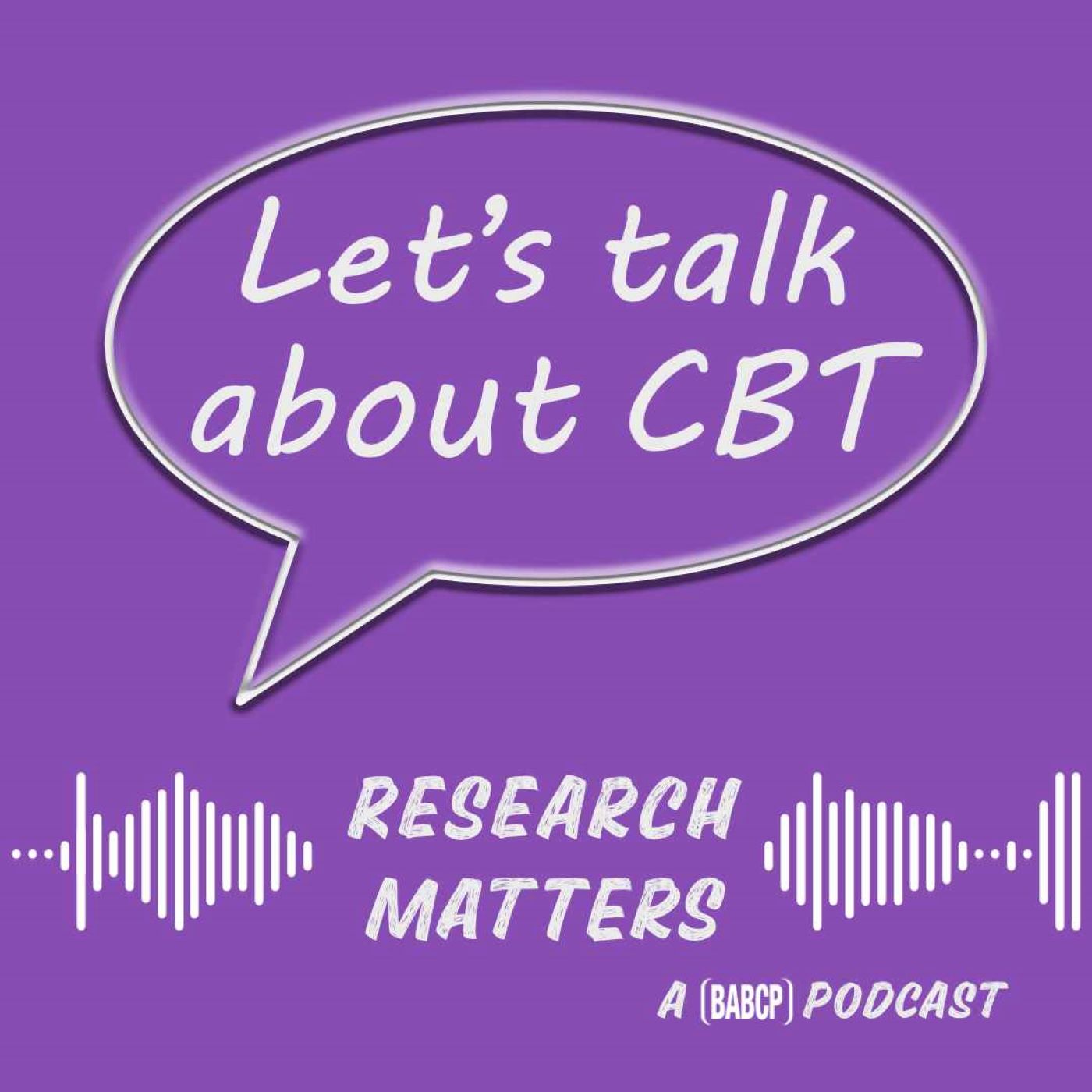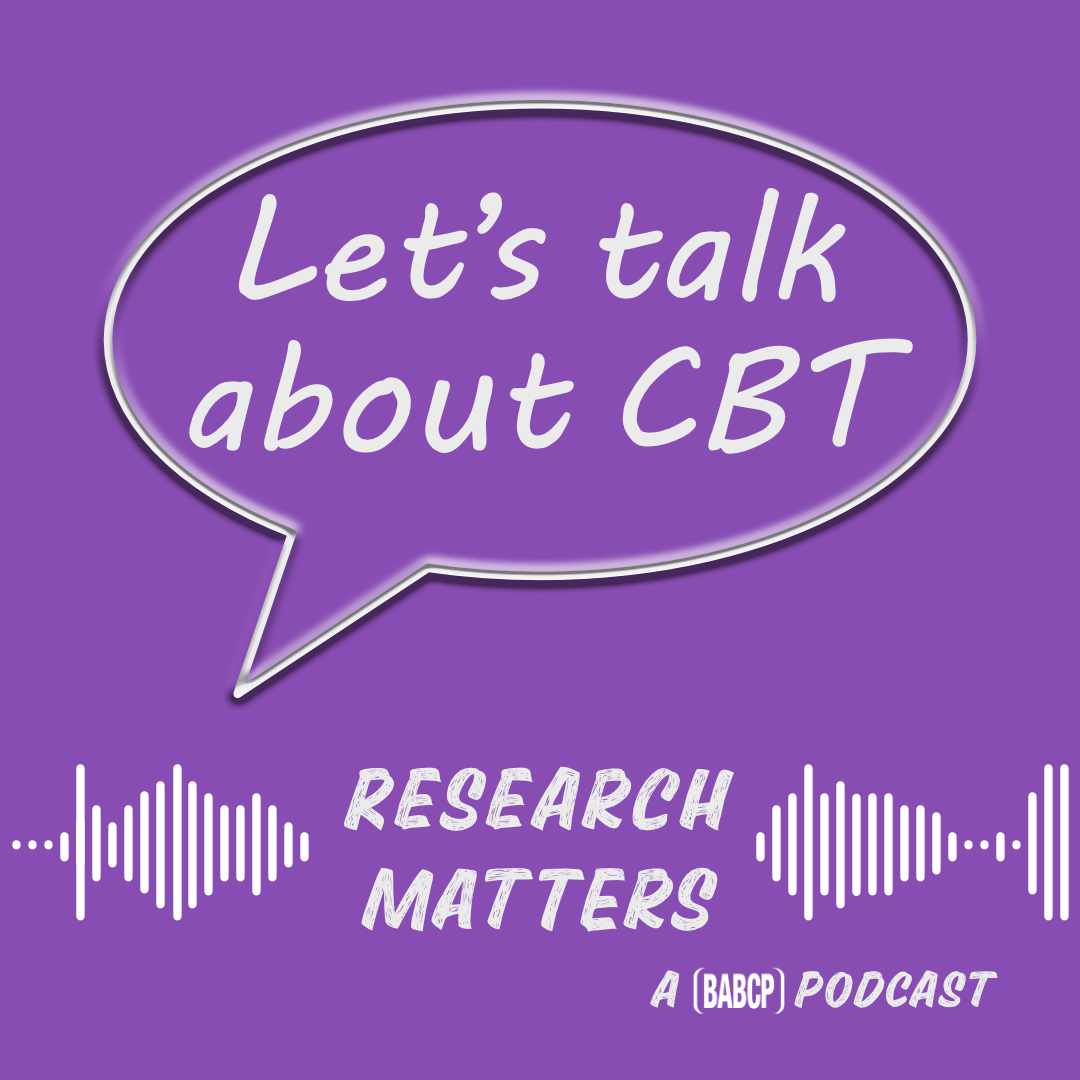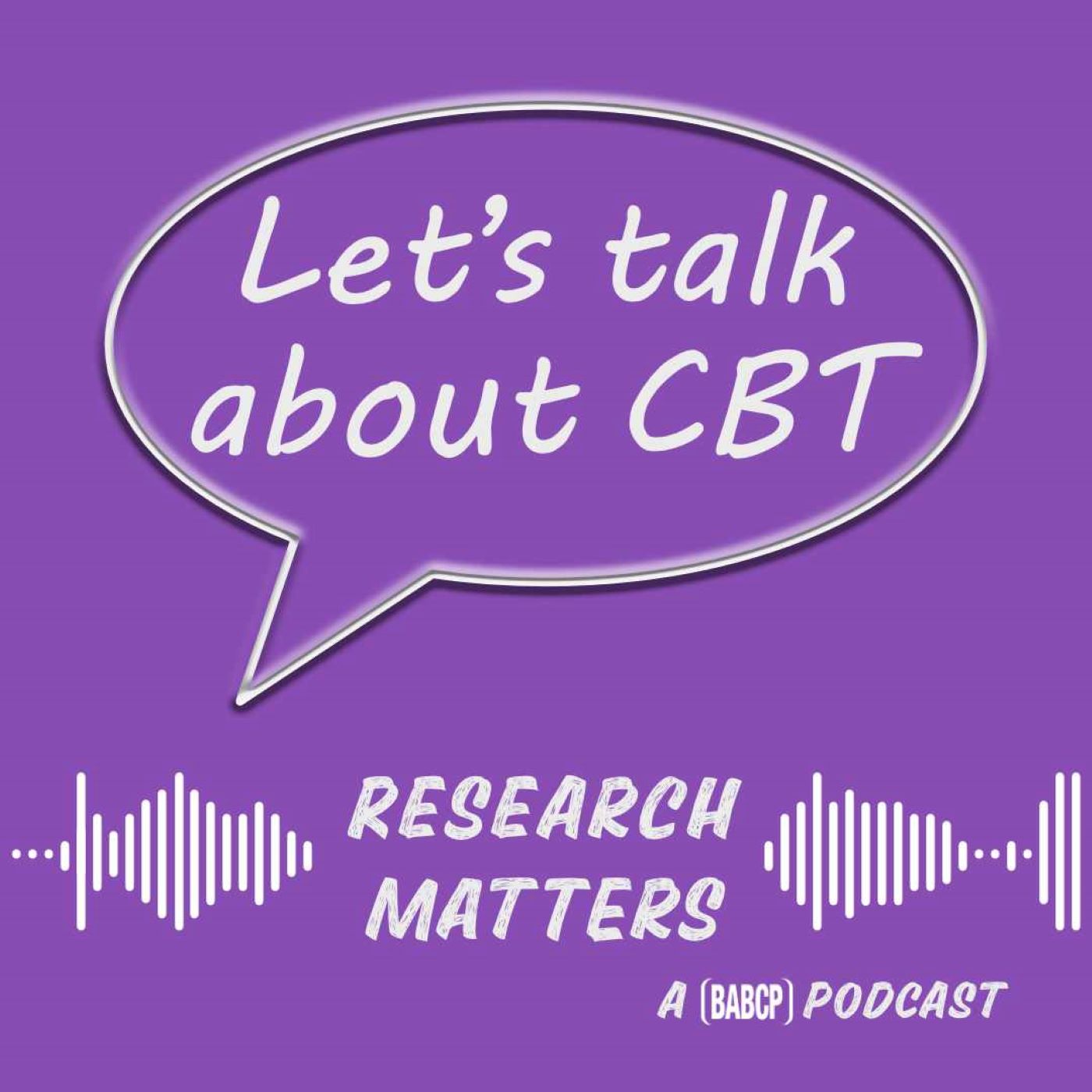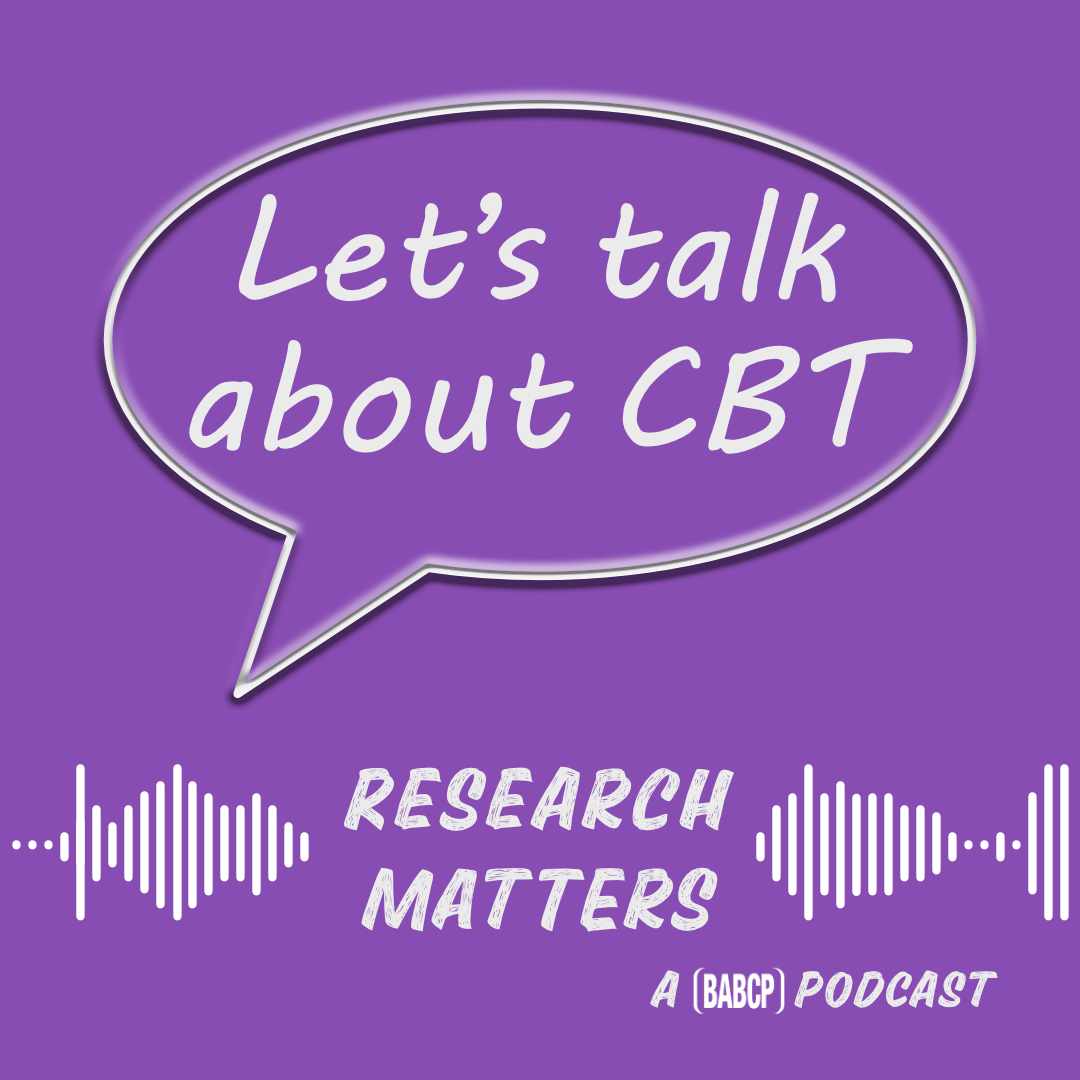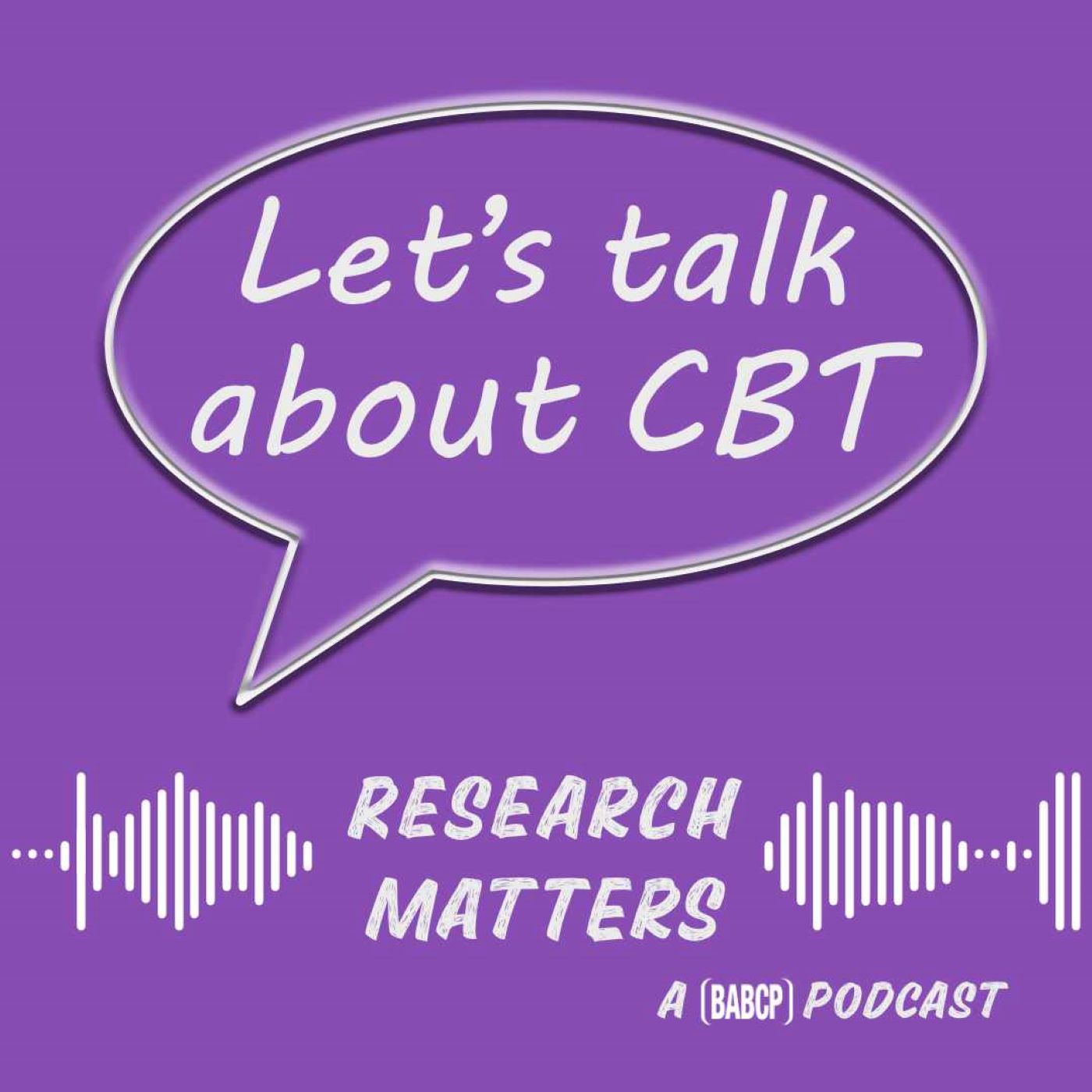“Things that shouldn’t be”: Understanding the meaning of violation in OCD and trauma with Sandra Krause
Description
Let’s Talk about CBT - Research Matters is a brand-new podcast from the BABCP, hosted by Steph Curnow, Managing Editor for the BABCP Journals Behavioural and Cognitive Psychotherapy and The Cognitive Behaviour Therapist.
In this episode, Steph talks with Sandra Krause a senior PhD student at Concordia University. Sandra is lead author on the paper “‘Things that shouldn’t be’: a qualitative investigation of violation-related appraisals in individuals with OCD and/or trauma histories” with her co-author Adam Radomsky published earlier this year in Behavioural and Cognitive Psychotherapy. Sandra explains what is known about the cognitive model for mental contamination and how her research builds on this to explore what her participants with lived experience of OCD or trauma define as violations and the implications of this for clinical practice.
You can find Sandra’s full paper here: https://bit.ly/3YLyoUn
If you enjoyed this episode, please rate, review, and subscribe to the podcast on your preferred platform. Follow us on Twitter @BABCPpodcasts for updates and join the conversation. Have feedback or suggestions for future episodes? We'd love to hear from you! Email us at podcasts@babcp.com.
Useful links:
You can follow Sandre and Adam Radomsky on Twitter for more updates about their work or follow their lab at the links below:
@SandraKrause4
@AdamRadomsky
Lab website: https://www.radomskylab.ca/
Credits:
Music is Autmn Coffee by Bosnow from Uppbeat
Music from #Uppbeat (free for Creators!): https://uppbeat.io/t/bosnow/autumn-coffee
License code: 3F32NRBYH67P5MIF
Transcript:
Steph: Hello and welcome to Let’s Talk about CBT- Research Matters, the podcast that explores some of the latest research published in the BABCP journals with me Steph Curnow. Each episode, I'll be talking to a recently published author about their research, what was the motivation behind it and how they hope it will impact the world of CBT.
Today I am speaking with Sandra Krause. Sandra is the lead author on the paper ‘Things that shouldn’t be’: a qualitative investigation of violation-related appraisals in individuals with OCD and/or trauma histories published in Behavioural and Cognitive Psychotherapy.
Steph: Sandra, welcome to the podcast.
Sandra: Thank you. Thanks for having me.
Steph: No problem. So before we begin, would you like to introduce yourself and talk a little bit about the research that you do?
Sandra: Sure, my name is Sandra Krause, and I'm a senior PhD student at Concordia University, which is in Montreal in Canada. And all of my research that I've done as part of grad school has been in the anxiety and obsessive-compulsive disorders lab. So that's been under the supervision of Professor Adam Radomsky and really, yeah, we've been interested in trying to understand different cognitive mechanisms that are at play. I'm trying to kind of better understand different aspects of anxiety disorders, OCD. My particular interest is in kind of the crossover with trauma, ultimately, really, just so that we can improve treatments and better help people who are suffering from those kinds of issues, so that's kind of the broad strokes of what we do, and clinically kind of work to apply the knowledge that we learned from the research to evidence based approaches to working with individuals who are struggling with those concerns.
Steph: Okay. Brilliant. Thank you. So we'll start talking about the paper that you've just had published in BCP. So can you tell me a little bit about what the aims of the study were, and were there any particular motivations behind the research?
Sandra: yeah, so when I started grad school, my research interest was on trying to kind of understand, we know a lot about within OCD contamination related symptomatology, but there's kind of a sub section of those types of symptoms that we know less about, and it's called mental contamination. And so this is, we often see people wash excessively, feel dirty in response to kind of intrusive moral thoughts rather than in response to any kind of contact with physical germs or dirt. So, maybe having an intrusive thought about something like incest or paedophilia, or intrusive memories of past assaults, things like this that have happened to them and that that's the driver of kind of the contamination symptoms that they experience. And so coming into my PhD, I was really curious, there's a cognitive model of mental contamination that was proposed initially when sort of the symptom domain was newer, but there's a lot of aspects of the model that aren't super fleshed out. So, for example, a big part of the model is the fact that these feelings, this is feeling of dirtiness and the washing that comes up, comes up because of a perceived violation, but there's not a super clear definition of what is a violation? What constitutes a violation? What kinds of events are violating for people and why? And then also, as the name suggests, the cognitive model kind of proposes that it's the way that people appraise or think about those violations that lead to the symptoms of mental contamination, but there's not a ton of work yet too that's been done at, zeroing in on specific types of thoughts that are linked to mental contamination feelings after experiencing a violation, and kind of differentiating between the types of thoughts that lead to mental contamination versus other kinds of negative emotions that might come up after a violating experience. So things like shame or anger or sadness that you might expect someone to experience as well. And so that's kind of where my study came in was that I wanted to really start from the ground up and speak to people who have lived experience with either OCD or trauma histories and hear from them, how they define the construct of violations so that we could get a clear definition for the model.
And then also walking through past instances of violation that they've experienced to understand different types of thoughts that they have, different appraisals that they make, and how those appraisals are linked to different kinds of negative emotions. So, again, kind of differentiating between those that were associated with those feelings of dirtiness, disgust, contamination, and the ones that are related to other kinds of negative emotional experiences like anxiety, fear, anger, shame, Et cetera. So that was really the aim of aim of the study.
Steph: brilliant. Thanks so much. So, if we get into the paper then, I think that leads quite nicely onto your participants. I see from the paper that you interviewed 20 participants. Who were they and how did you recruit them?
Sandra: Yeah, so, the inclusion criteria for the study. So in order to be able to participate, we were interested in interviewing people who either met criteria for OCD or who met criteria for, we call Criterion A and the DSM for PTSD. And so this is people who have experienced a serious trauma, so either actual or threatened death or serious injury or sexual violence that they experienced themselves or witnessed firsthand. And so, in order to get participants, we have a clinical registry as part of the lab. So there was at the time of my study, there was also a randomized control trial happening in the lab for treatment for OCD. So, we advertised through that study to see if anyone was interested in participating in the study as well. And then we also advertised on Twitter and online. And so really we were just looking for people who had these experiences or kind of experienced these types of symptoms who are adults, so over 18, and who spoke English. So it was pretty broad inclusion criteria. And yeah, anyone who was interested reached out and then I had a phone screener with them and just went over those kind of symptom, sections of the Mini-International Neuropsychiatric Interview and confirm that they were eligible. And then we conducted the interview over Zoom with them. But yeah, these were just kind of people in the community. Some were seeking therapy, and some were just kind of interested in contributing to research.
Steph: And did you get many, people come forward from Twitter? I'm always intrigued when I see studies on Twitter and how much uptake they really have.
<p cla


